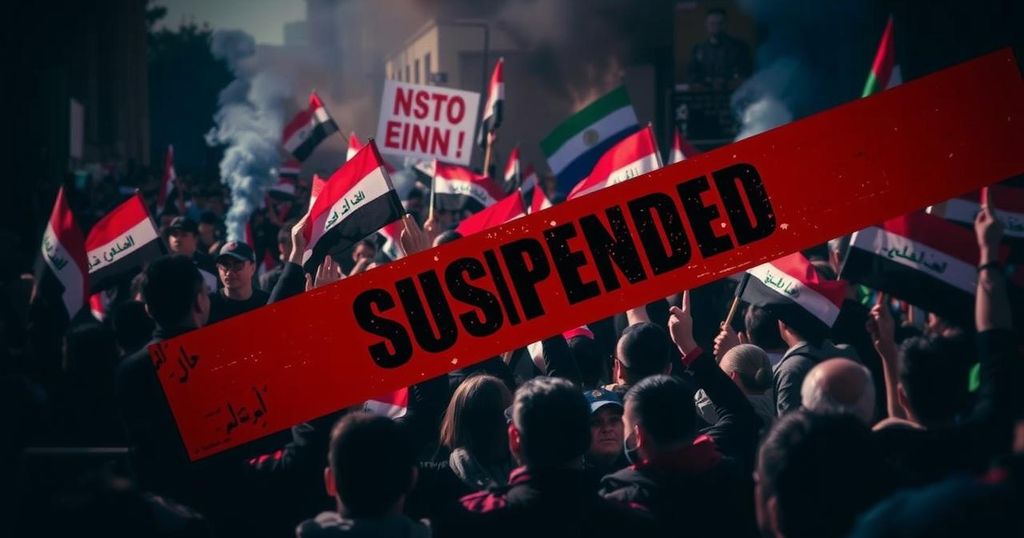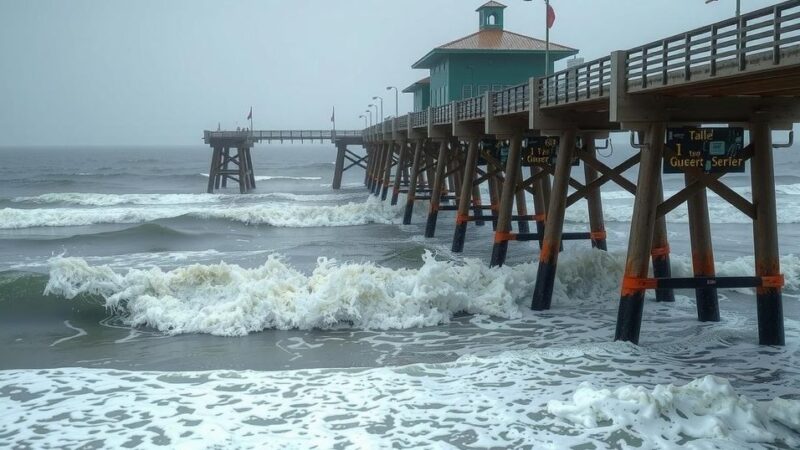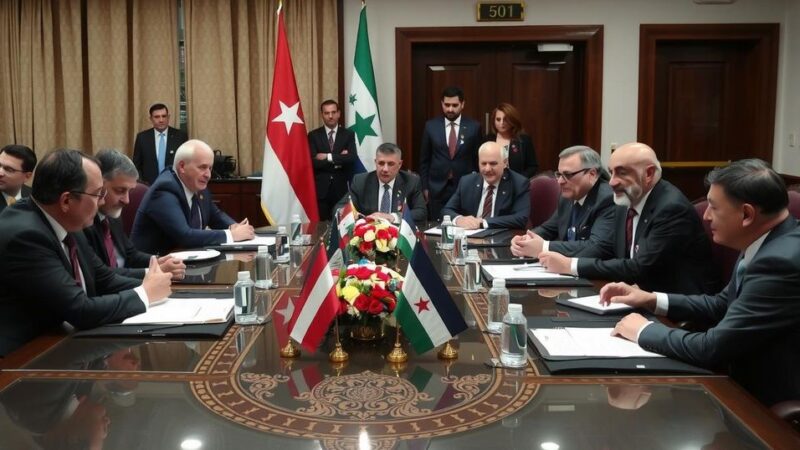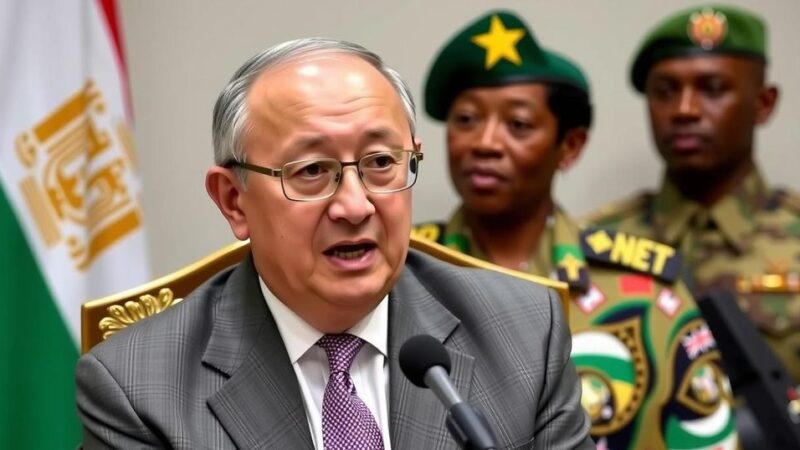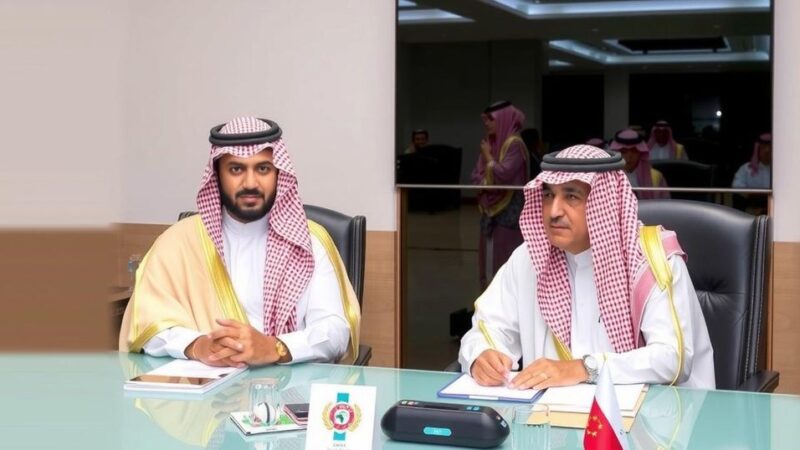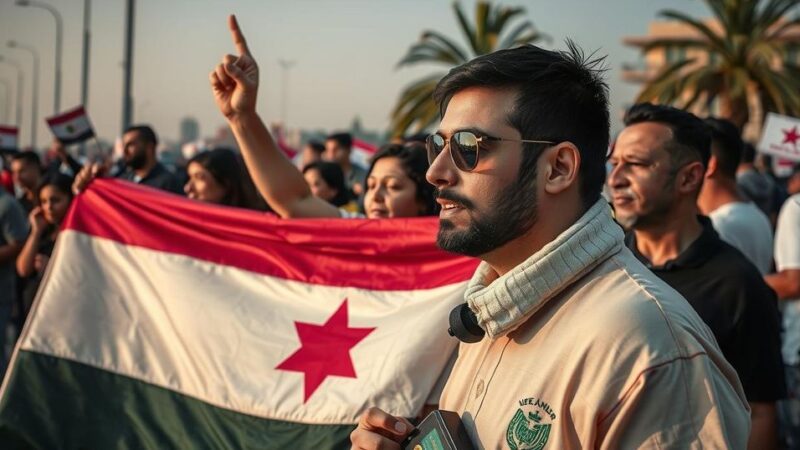Iraq has suspended the operating license of Saudi-owned MBC Media Group after it aired a report characterizing several Iranian-backed group leaders as terrorists. This action followed protests where supporters stormed the channel’s Baghdad office, prompted by outrage over the broadcast. The situation highlights the volatile intersection between media and regional politics.
In a significant move, Iraqi authorities have suspended the operating license of the Saudi-owned MBC Media Group following a controversial broadcast that labeled several leaders of Iranian-backed militant organizations as terrorists. The Iraqi Communication and Media Commission announced this suspension on Saturday, just one day after aggressive protests against the channel unfolded, wherein supporters of these groups forcefully entered the MBC offices in Baghdad, causing extensive damage. The protests arose after MBC aired a report identifying figures such as Yahya Sinwar, the deceased military chief of Hamas, Qassem Suleimani, the Iranian Quds Force general killed in a U.S. drone strike, and Hassan Nasrallah, the leader of Hezbollah, as exemplars of terrorism. The report triggered outrage amongst supporters of these groups, culminating in the mob violence where protesters set fires outside the channel’s premises and proclaimed dissent against Saudi Arabia. In response to the unrest, the Saudi Media Regulatory Authority condemned the report for breaching its media policies and indicated its plans to evaluate legal measures concerning the situation. Meanwhile, MBC representatives in Iraq remained silent amidst numerous attempts for commentary, and the contentious report appears to have been retracted.
The situation in Iraq is highly charged due to the complex interplay of various armed groups, many of which are backed by Iran. These groups, including Hamas and Hezbollah, are designated as terrorist organizations by the United States. The MBC Media Group, a significant player in the media landscape of the Arab world and owned by Saudi interests, finds itself at the center of this geopolitical conflict. The recent unrest points to the broader regional tensions between Saudi Arabia and Iran, and highlights how media narratives can ignite passionate responses from militant supporters, as evidenced by the violent protest that ensued following the airing of this specific report. Iraq’s regulatory actions reflect the country’s precarious balancing act in addressing both domestic sentiment and foreign influences in the media sphere.
The Iraqi government’s decision to suspend MBC Media Group’s license underscores the sensitive nature of media reporting in a region fraught with tension and conflict. The violent protests serve as a reminder of the intense loyalty that Iranian-supported groups command, and the profound impact that media narratives can have in polarizing public opinion. As Saudi Arabia contemplates its legal options in this matter, the ongoing developments will likely signal a critical moment in the media’s role within Iraq and the broader Middle East.
Original Source: www.nytimes.com

